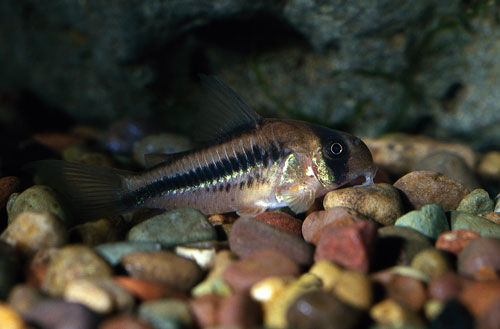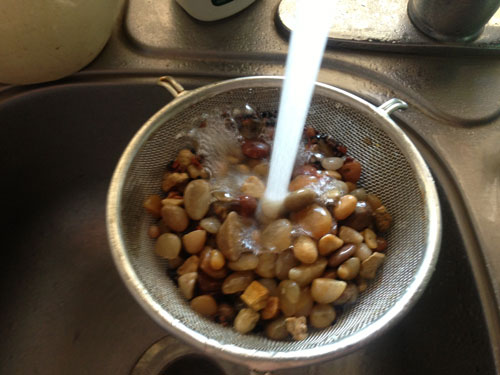Xeroderma, the medical name for dry skin, occurs most commonly on the lower legs, arms, the sides of the abdomen and thighs and is a very common condition. Only a lucky few of us have 'normal' skin; the rest of us have dry, oily or combination skin; if dryness is your skin problem, read on.
The dermis is the layer of skin beneath the epidermis that consists of connective tissue and cushions the body from stress and strain. The average square inch of skin holds 650 sweat glands, 20 blood vessels, 60,000 melanocytes, and more than a thousand nerve endings. The epidermis is the outermost layer of the skin.
Environmental factors, such as exposure to sun, wind, cold, chemicals, or cosmetics, or excessive bathing with harsh soaps, can cause dry skin. Skin gets exposed to the elements, especially in winter, causing it to become drier. When the oil glands do not supply enough lubrication to the skin, the skin becomes dehydrated.
Dry skin can be due to a genetic condition but it's not common. Nutritional deficiencies, especially deficiencies of vitamin A and the B vitamins, can also contribute to dry skin or result in a chronic dry skin condition that's not relieved by anything else. Bathing or showering too frequently, especially if one is using harsh soaps, may contribute to dry skin.
When the skin is dry and dehydrated, dead skin cells remain on the skin which may block pores and promote acne, zits, blemishes, or other breakouts; drink plenty of pure water. Consider taking cod liver oil or fish oil supplements, in liquid form, every day. Drink freshly extracted carrot juice, if you can, every day; carrot juice is an excellent cleanser for the liver, great for the skin and contains a great deal of nutrients, all beneficial for dry skin, eczema, acne, zits, pimples, blackheads, whiteheads, and other breakouts.
Use bath oils and moisturizers, or better yet, coconut oil, daily. Use as little soap as possible, if you have to use any, limiting its use to the armpits and genital area. Avoid all products that have an alcohol base.
After a soothing bath or shower at night just before bedtime, apply a thin layer of coconut oil over your entire body; it'll even last on your skin through your shower in the morning. Use a thin layer of coconut oil under your make-up, if you wear it, to moisturize and soften your skin throughout the day. I buy coconut oil by the gallon; it's cheaper for a whole gallon of coconut oil than a small jar of department store, name-brand moisturizer.
Coconut oil is the best healing, soothing, and moisturizing treatment I've found for dry skin; in fact all types of skin conditions, skin eruptions, pimples, acne, milia, irritations, cuts, burns, fungus, etc. When you buy coconut oil, make sure you get the kind that hasn't been refined, processed and deodorized.
The skin supports its own ecosystem of microorganisms, including yeasts and bacteria, which cannot be removed by any amount of cleaning. Sunlight, water and air play an important role in keeping the skin healthy.
Call your doctor or naturopath when your skin feels itchy all over your body, with or without a visible rash. Make sure to call your skin doctor or dermatologist when you have any open cuts or sores from scratching that won't heal. Usually we can take care of dry skin without seeing our doctor, but sometimes we can't avoid it.

 Useful Idea For Stronger Nutrition And Wellness
It truly does show when you take time to create a proper no
Useful Idea For Stronger Nutrition And Wellness
It truly does show when you take time to create a proper no
 Top 10 Fishkeeping Mistakes
Aquarists can say they’ve never made a mistake in their fish
Top 10 Fishkeeping Mistakes
Aquarists can say they’ve never made a mistake in their fish
 Cleaner Wrasse
Cleaner Wrasse
 How to Get Rid of Cloudy Aquarium Water
Occasional cloudy water is an issue for nearly all aquarists
How to Get Rid of Cloudy Aquarium Water
Occasional cloudy water is an issue for nearly all aquarists
 Red Algae in Marine Aquarium
Q. Ive been keeping saltwater fish for about five years, and
Red Algae in Marine Aquarium
Q. Ive been keeping saltwater fish for about five years, and